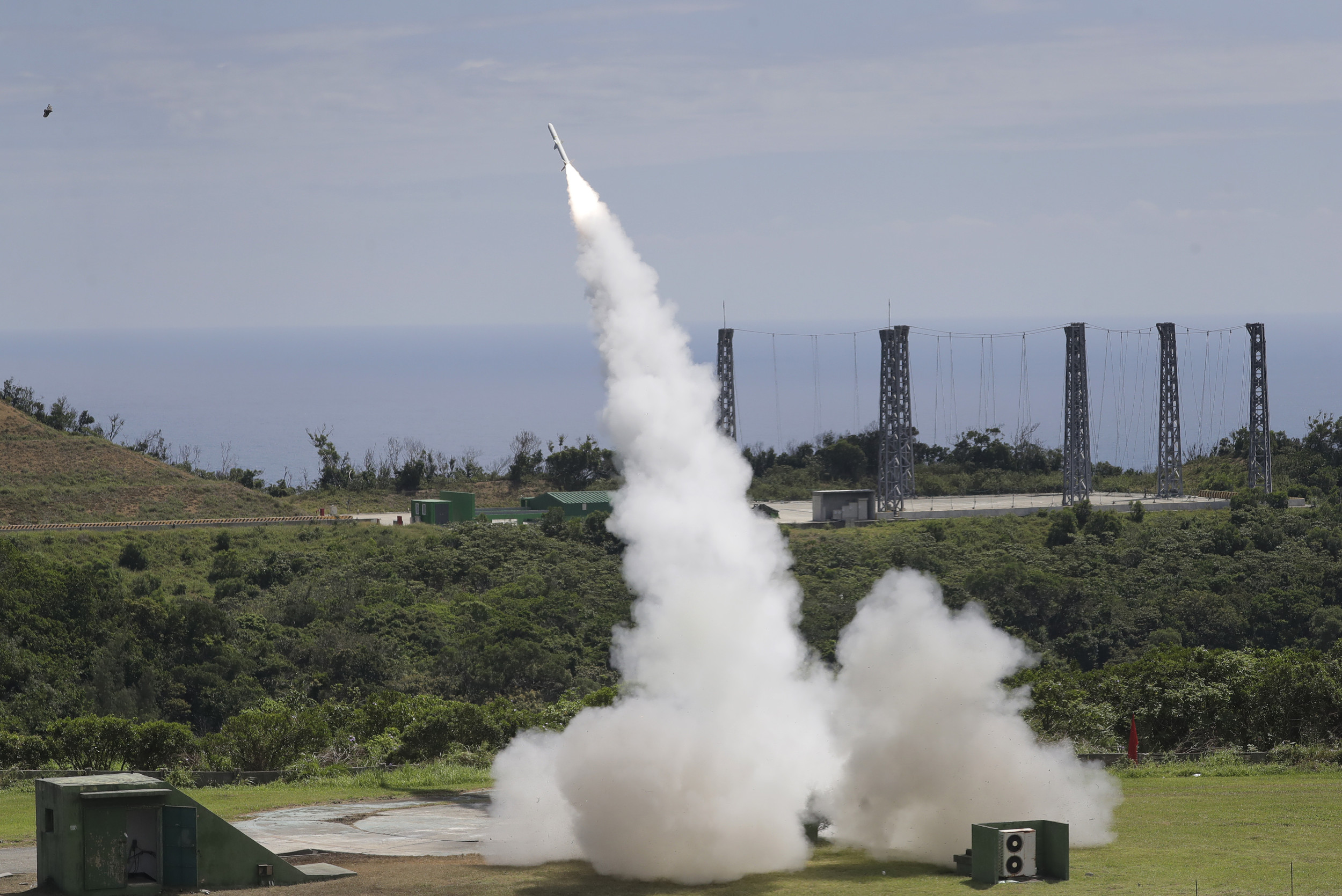
Taiwan began preparations this week for its annual Han Kuang military exercise in response to what its government describes as escalating military pressure from China.
The war games—scheduled to last 10 days and nine nights from July 9—are to be the largest ever across Taiwan proper and its outlying islands, officials said. More than 22,000 reservists are due to be mobilized and the exercise is scheduled to run concurrently with island-wide civil defense drills.
Why It Matters
The Han Kuang exercise will be held against the backdrop of an increased risk of conflict across the Taiwan Strait, a flash point that could drag the United States and China into a major war over Taiwan’s future.
China claims Taiwan as its own despite Taipei’s objections. The United States does not recognize Taiwan’s statehood but has political and economic stakes in a peaceful resolution to the decades-long dispute, and is obliged by U.S. law to help Taipei arm itself against a possible attack.
The scale and scope of this year’s drills reflect the island’s growing apprehension, but also its desire to apply lessons learned from recent conflicts in Europe and the Middle East, for example, about asymmetric weapons systems and territorial defense.
Chiang Ying-ying/AP
What To Know
Taiwan’s Defense Ministry is calling up an additional 7,000 reservists to join this year’s Han Kuang exercise, said Taipei defense chief Wellington Koo. One of the objectives is to assess how long it would take to ensure reservists are combat ready in wartime, Koo said.
Taiwan’s armed forces have an active-duty strength of just over 150,000, compared with China’s standing army of over 2 million soldiers.
This year, days of live-fire training across Taiwan’s archipelagic territory will run twice as long as in previous annual drills, according to plans, covering so-called “gray zone” activity that falls short of conflict, anti-landing joint operations as well as a protracted defense of the island’s vulnerable sites.
The Taiwan army is expected to stage another test of its newly acquired HIMARS rocket launchers alongside indigenous anti-air, anti-ship and ground-attack missiles.
For the first time, a convenience store chain will participate in parallel civil defense drills to distribute humanitarian supplies. Other urban training protocols include air-raid guidance and daytime evacuation rehearsals.
The 41st Han Kuang exercise will take place amid heightened political animosity across the strait. Taiwan President Lai Ching-te has given four of 10 planned speeches through which he hopes to gird Taiwanese society for mounting Chinese pressure to yield to Beijing’s demands.
The Chinese government’s Taiwan Affairs Office responded this week by calling Lai a “troublemaker” who was “stirring up confrontation across the Taiwan Strait.”
What People Are Saying
Ely Ratner, former U.S. assistant secretary of defense for Indo-Pacific security affairs and now a principal at the Marathon Initiative think tank, told Taiwan’s Central News Agency: “Taiwan is on the right track to contribute to deterrence and should continue apace with heightened urgency and resources.”
Chen Binhua, China’s Taiwan Affairs Office spokesperson, said in an press release: “The two sides of the Taiwan Strait belong to the same China…We hope that the vast majority of Taiwan compatriots will resolutely oppose ‘Taiwan independence’ separatist acts and jointly maintain peace and stability in the Taiwan Strait for the sake of national righteousness and their own well-being.”
What Happens Next
The 41st annual Han Kuang exercise is scheduled from July 9-18.
In late July and August, around a quarter of Taiwan’s sitting lawmakers—including half of those representing Taiwan’s main opposite Kuomintang party—face recall votes, in an unprecedented campaign that could shake up the island’s political landscape for years before the next general election in January 2028.
